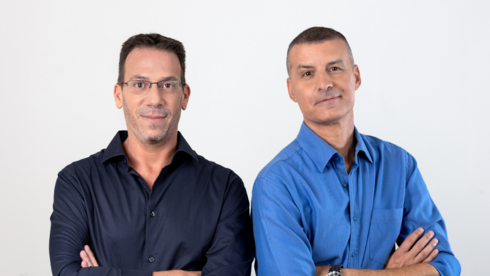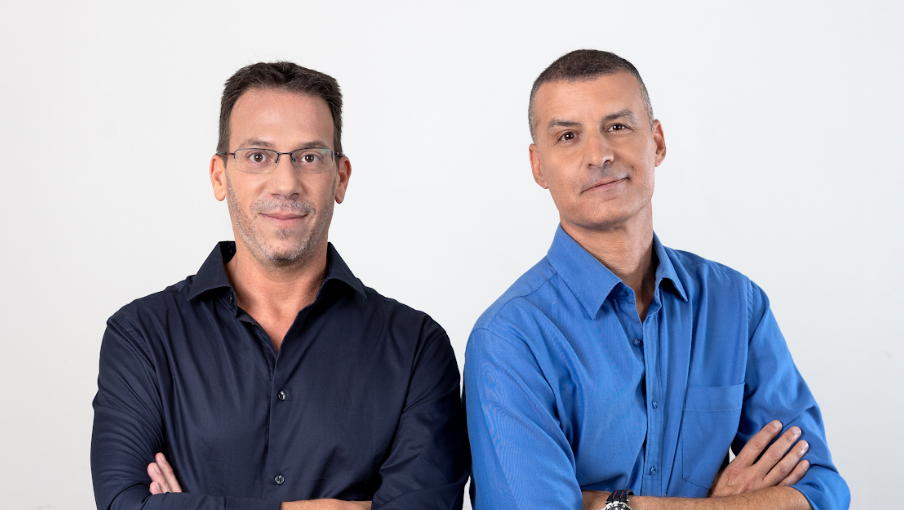
VC AI Survey
Why Horizon Capital expects $1M ARR from $1M Pre-Seed in 18 months
For CTech’s VC AI Survey, Yaniv Jacobi and Lior Segal explain how the firm is betting on lean teams and deep domain expertise.
AI isn’t just another sector for Horizon Capital—it’s becoming the backbone of how the Israeli early-stage fund operates. From due diligence to internal workflows, Managing Partners Yaniv Jacobi and Lior Segal say artificial intelligence now drives much of their day-to-day.
But when it comes to sourcing deals, they still bet on human networks and on founders who can move fast, build lean, and cut through the noise. In this interview, they share how they’re evaluating startups in a high-velocity AI market, where $1 million in funding could be expected to generate $1 million in ARR within just 18 months.
You can learn more in the interview below.
Fund ID
Name and Title: Yaniv Jacobi and Lior Segal, Managing Partners
Fund Name: Horizon Capital
Founding Team: Yaniv Jacobi, Lior Segal
Founding Year: 2012
Investment Stage: Pre-Seed, Seed
Investment Sectors: AI, Fintech, Software & AI, subscription B2B companies
On a scale of 1 to 10, how has AI impacted your fund’s operations over the past year - specifically in terms of the day-to-day work of the fund's partners and team members?
8 - AI has become an integral part of our day-to-day operations, particularly in due diligence, market mapping, and marketing. We leverage AI-driven tools to assess startup traction and conduct early-stage technical evaluations. We've also embedded AI into our knowledge management systems and content workflows, significantly boosting both speed and quality.
That said, deal sourcing remains relatively unaffected. This area still relies heavily on personal relationships, in-person interactions, and our long-standing network of founders, investors, and operators.
Have you already had any significant exits from AI companies? If so, what were the key characteristics of those companies?
No exits yet, but we see strong momentum in our AI-focused portfolio. One of the most promising examples is Aiode, a company that is redefining how music is created and produced by building its foundation models. Their proprietary AI architecture showcases both deep technical capability and innovation.
Is identifying promising AI startups different from evaluating companies in your more traditional investment domains? If so, how does that difference manifest?
Yes. The pace of change in AI has shifted our focus to assessing the founder’s ability to execute fast and adapt in a highly dynamic environment. We look for “Founder-market fit,” which means teams with intimate knowledge of the domain they’re building for and a basis for insight-driven execution. With GenAI enabling rapid development and constant experimentation, we’re in a phase of high noise and product overlap. That’s why we focus on teams that can move with speed and clarity, cut through the noise, and build sustainable value from day one.
What specific financial performance indicators (KPIs) do you examine when assessing a potential AI company? Are there any AI-specific metrics you consider particularly important?
In addition to core SaaS KPIs (ARR, CAC/LTV, NRR, sales cycle length), we look at:
- Time to production deployment for customers / Time to market!
- Model training/inference cost vs. Gross Margin & COGS
- Data acquisition efficiency, building optimization
- Performance improvements over time (model accuracy, latency, etc.)
How do you approach the valuation of early-stage AI startups, which often lack significant revenues but possess strong technological potential?
As Pre-Seed & Seed investors, we start with the basics: Team first. The founding team’s skills, experience, and market insight are critical. We examine the size of the opportunity and the depth and defensibility of the technology. Another key consideration is traction. Given the speed of AI development, we increasingly expect startups, even at the pre-seed stage, to have an MVP or early users. Traction helps validate both the team and the tech.
What financial risks do you associate with investing in AI companies, beyond the usual technological risks?
As we are investing in the area of B2B software and AI infrastructure, our mindset today is shaped by the belief that within 12–18 months, with $1M in pre-seed investment, a startup can reach $1M in ARR. That’s the level of efficiency AI enables, and it's also what we’ve come to expect. While financial risks certainly exist, such as high cloud compute and storage costs or data access limitations driven by privacy and compliance concerns, we believe these can be managed if founders take the right approach. The key is building lean, fast-moving companies that are bold enough to adapt and move ahead of the curve.
Do you focus on particular subdomains within AI?
Horizon Capital has always invested with an agnostic view toward industry segments, focusing instead on strong business models. While our core remains B2B, we’re especially drawn to models built around subscription and long-term enterprise relationships. Our strongest conviction today lies in GenAI with enterprise use cases, where we see clear demand, measurable ROI, and significant opportunity for long-term defensibility. Having said that, although we are not focused specifically on a particular subdomain, we keep seeing great potential ventures we probably wouldn’t have considered a few years back.
How do you view AI’s impact on traditional industries? Are there specific AI technologies you believe will be especially transformative in certain sectors?
We're particularly excited about AI's ability to unlock productivity gains that aren't just incremental but exponential, empowering smaller teams to achieve the output of much larger ones.
We see transformation in the traditional industries as one of the most promising directions for AI. Many sectors, such as legal, finance, and supply chain, are still operating with outdated, manual workflows that are ripe for disruption. The rise of AI Agents, capable of automating multi-step decision-making processes and interacting with software autonomously, presents a powerful opportunity to reimagine how work gets done in these environments.
What specific AI trends in Israel do you see as having strong exit potential in the next five years? Are there niches where you believe Israeli startups particularly excel?
Not exactly a trend, but one of the most likely drivers of the next great companies is what we call AI-native company building. These are startups that, from day one, embed AI into every layer of the business. This approach creates lean, agile companies with great execution.
Are there gaps or missing segments in the Israeli AI landscape that you’ve identified? What types of AI founders are you especially looking to back right now in Israel?
We’re especially looking for teams that deeply understand their market and operate with a global mindset. While Israel leads in infrastructure and cybersecurity, there are still gaps in GenAI solutions tailored for overlooked industries like logistics, manufacturing, construction, or retail ops. The strongest founders we support integrate AI not just into the product but also into sales, GTM, and operations.













